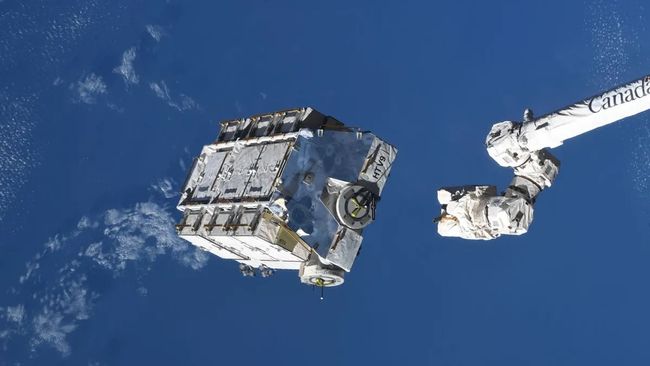This was part of a pallet discarded along with 2630 kilograms of obsolete batteries back in March 2021
NASA has confirmed that the object that crashed through the roof of a Florida home last month did indeed come from the ISS. This incident took place in a seaside town in a house owned by Alejandro Otero. Immediately after the March 8 incident, Otero suggested that the object was part of a cargo pallet containing 2,630 kilograms of obsolete batteries dropped from the ISS in March 2021.
Analysis carried out at the Space Center named after. Kennedy in Florida, confirmed this hypothesis. On April 15, agency officials said that based on an examination of the object, it was determined that the debris was a NASA flight support equipment support used to install batteries on a cargo pallet. The cylindrical piece of space debris is made of a metal alloy called Inconel, weighs 0.7 kg and measures 10 centimeters high and 4 cm wide.
Nickel hydride batteries were discarded after new lithium-ion versions were delivered to the ISS for power upgrades. It was expected that the pallet and batteries would completely burn up in the Earth's atmosphere, but this did not happen. The agency plans to conduct a detailed investigation of the reentry analysis to determine why the debris did not completely burn up as it passed through Earth's atmosphere and, if necessary, update the modeling and analysis.
«Otero's experience reminds us that there is a significant amount of hardware in space», — the European Space Agency said in a statement. There are about 36,500 pieces of space debris in low-Earth orbit with a width of at least 10 cm and 130 million objects with a diameter of at least 1 millimeter. These fragments pose a danger to satellites and other orbital objects due to the enormous speeds at which they move. For example, at an altitude of 400 kilometers — average altitude of the ISS — orbital speed is about 27,400 km/h.
Some of this debris falls to Earth from time to time. For example, the core stages of China's Long March 5B rocket regularly fall uncontrollably onto the planet's surface, causing concern in the international space community.
NASA's new analysis could have financial implications for both the agency and Otero. He expressed hope for assistance from the relevant authorities in eliminating the damage from this incident. Otero also stressed the importance of developing space debris management techniques to avoid similar situations in the future.

